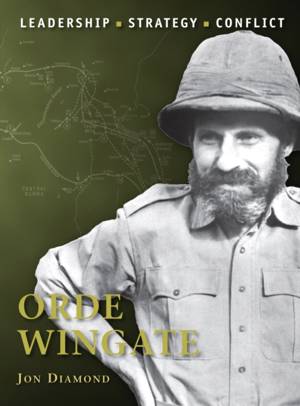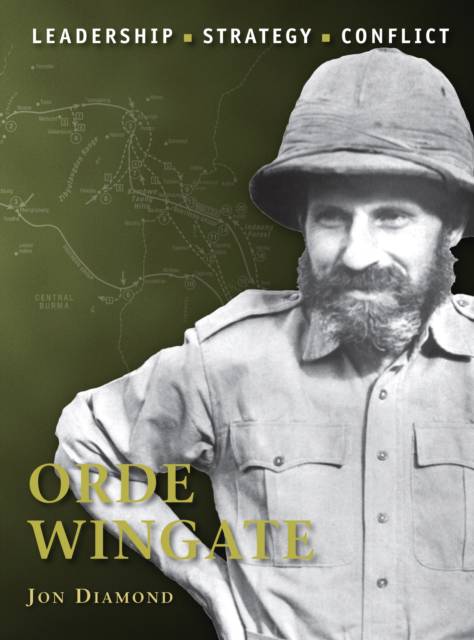
Je cadeautjes zeker op tijd in huis hebben voor de feestdagen? Kom langs in onze winkels en vind het perfecte geschenk!
- Afhalen na 1 uur in een winkel met voorraad
- Gratis thuislevering in België vanaf € 30
- Ruim aanbod met 7 miljoen producten
Je cadeautjes zeker op tijd in huis hebben voor de feestdagen? Kom langs in onze winkels en vind het perfecte geschenk!
- Afhalen na 1 uur in een winkel met voorraad
- Gratis thuislevering in België vanaf € 30
- Ruim aanbod met 7 miljoen producten
Zoeken
Omschrijving
Reknowned for originating Chindit guerilla warfare raiding during World War II in Burma, the maverick Orde Wingate (1903-44) served across Africa and the Middle East before finding fame in southeast Asia. He started out by attending Charterhouse public school and then the Woolwich military academy. He joined the Royal Artillery in 1923, became a fine horseman, and went on to learn Arabic. He then served in the Sudan (1928-33), Palestine (1936-39), Ethiopia (1941) and eventually Burma (1942-44), where he rose to fame by creating the Chindits. Wingate is an extremely important figure in military history, and deserves just as much attention as Alanbrooke, Montgomery, and Auchinleck. Unlike them, however, he always operated outside the accepted etiquette and the formal chain of command. He was a maverick and misfit, and he held to the belief that the type of mass warfare demonstrated on the Western Front (1914-18) had very little to do with the warfare of the future. He believed that the latter would require an 'indirect approach', in which heavily lumbering armies would be exquisitely vulnerable to small groups of highly motivated, mobile and well-armed guerrillas. History has proved Wingate correct; in the years since 1945 the whole issue of small-unit guerrilla warfare has come of age, and large armies have become obsolete dinosaurs. This book covers Wingate's experiences in pre-war Palestine, in Ethiopia in 1941 (where he formed an irregular guerrilla unit to harrass the Italian garrisons), and in World War II Burma, where the two Chindit campaigns would be his apotheosis. Their root idea was long-range penetration into Japanese rear areas, to destroy communications and deny supplies to the forces in the front line. It was a truly heroic conception, although sadly few of the troops originally drafted into the Chindits proved to be sufficiently robust to meet the challenge. This book also examines that accusations that Wingate was psychologically unbalanced and that his professional ideas were conceived without adequate consideration of the real overall picture. He was a 'flawed genius' who could be persuasive and charismatic, but who also displayed a reckless disregard for the welfare of both his own troops and the native populations of their allies.
Specificaties
Betrokkenen
- Auteur(s):
- Illustrator(s):
- Uitgeverij:
Inhoud
- Aantal bladzijden:
- 64
- Taal:
- Engels
- Reeks:
- Reeksnummer:
- nr. 20
Eigenschappen
- Productcode (EAN):
- 9781849083232
- Verschijningsdatum:
- 23/10/2012
- Uitvoering:
- Paperback
- Formaat:
- Trade paperback (VS)
- Afmetingen:
- 183 mm x 241 mm
- Gewicht:
- 204 g

Alleen bij Standaard Boekhandel
+ 44 punten op je klantenkaart van Standaard Boekhandel
Beoordelingen
We publiceren alleen reviews die voldoen aan de voorwaarden voor reviews. Bekijk onze voorwaarden voor reviews.









